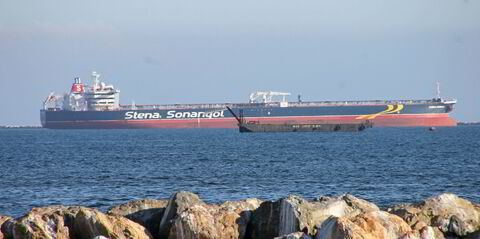Art Regan, the chief executive of US tanker operator Principal Maritime, singled out ballast-water legislation as a particularly worrisome proposition for many operators during the Connecticut Maritime Association’s annual conference in Stamford.
Regan argued that the cost of compliance, which will hinge on the installation of ballast water treatment systems, could cripple cash-strapped owners if regulators don’t proceed with caution during the implementation phase of the initiative.
“Regulation has an immediate cost that many may not be able to immediately absorb,” the executive explained during his presentation at Shipping 2015. He added: “It really is dependent on individual owners and where they are at a particular point in the cycle.”
Going forward the Connecticut-based executive urged the agencies that will be involved in the passage and enforcement of ballast-water requirements to revisit the Oil Pollution Act of 1990 (OPA 90) for guidance.
“OPA 90 was a disciplined phase-out over 20 years,” Regan continued. “[The implementation of the law] was well organized, well thought-out. It’s extremely important for [regulators] to consider the commercial impact on owners.”
Regan argued that an owner of panamax bulkers, for instance, would be particularly susceptible to insolvency if they were forced to equip their ships with ballast-water treatment systems in today’s market since the segment has grappled with lacklustre day rates for some time.
Principal Maritime and its affiliates oversee more than a dozen crude carriers and chemical tankers. The company, which opened its doors in 2010, is owned by Apollo Global Management, a private equity firm that intends to take the owner public.
The International Convention for the Control and Management of Ships’ Ballast Water and Sediments (BWM Convention) took shape in 2004. As we reported, it is widely believed that many key provisions will be adopted within the next 12 months.
According to the UK P&I Club, approximately 57,000 vessels will need to be equipped with ballast-water treatment systems when the convention receives the requisite number of ratifications that are needed before it formally enters force.



